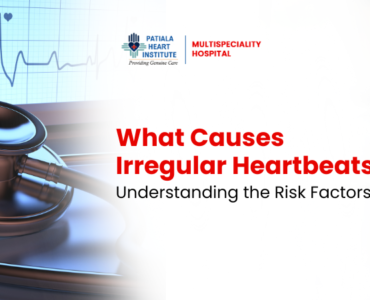Pacemakers help your heart maintain a consistent rhythm. Inserting a pacemaker involves creating a “pocket” where the pacemaker is placed by creating an incision in the skin.
Pacemakers usually last 5 to 7 years or even longer depending on the type of device and its usage. In most cases, you can live a normal life.
It is the era of technology and with its advancement, chances are pretty reduced that microwaves or other devices can interfere with your device. Still, you should take a few precautions with a pacemaker.
What is a Pacemaker?
A small device implanted under the skin to treat symptoms caused by a heart block or sick sinus. Pacemaker implantation helps the patients to regulate their heart rhythm.
A pacemaker usually does not cause any problems because it is used to eliminate them. But once you begin living with it, there are certain things to avoid with a peacemaker.
We will inform you about certain precautions that you need to take after the pacemaker. But before that let’s get to know when a person needs a pacemaker.
Who Needs a Pacemaker?
Mostly people havings issues like slow heartbeat and sudden drop in heartbeat require a pacemaker. Pacemakers are often recommended to people who have certain cardiac conditions, including:
- Heart failure
- Conditions that can cause heart rhythm problems, such as amyloidosis, long QT syndrome, and cardiomyopathy
- A history of cardiac arrest
- Syncope (fainting) caused by an abnormal heart rhythm
- 2nd or 3rd-degree heart block
- Uncontrolled atrial fibrillation
Things to avoid after a Pacemaker Surgery
Doctors always prescribe restrictions after pacemaker surgery to their patients. But, of course, you won’t be refrained from observing your daily chores but only a few in order to safeguard you from electromagnetic interference.
After pacemaker implantation, there are a few things that you need to avoid:
Mobile Phone
If the mobile phones are held closer to the pacemaker, which can happen when the mobile is kept in the breast pocket, it can affect its function and put you in trouble. Therefore, you should try to keep your mobile phones at least 6 inches away from the pacemaker.
Radiation Therapy
The powerful radiation can harm the pacemaker implantation. In addition, the radiation used in cancer can severely destroy the circuits of pacemakers. So, if you require radiation therapy, ensure the pacemaker is specially shielded to protect it from radiation.
Security Scanners
The scanners at the airport or malls contain magnets, which can create a problem for your peacemaker. You can tell your security checker beforehand that you have a pacemaker, so they should not bring the scanner anywhere near your pacemaker.
Anti-theft Detectors
There are walk-through anti-theft detectors in almost every store. These detectors work by generating electromagnetic waves that can interfere with the functioning of pacemakers. Don’t lean on the sensors; walk through quickly without lingering too long to reduce your exposure.
MRI Scans
Patients with a pacemaker cannot go for MRI scans. There are several magnets in MRI scans that can damage a pacemaker.
Some Medical Procedures That Can Affect Pacemakers
There are a few medical conditions that can affect your pacemakers. Such procedures include:
- Electrocautery is used during surgery to control bleeding
- Lithotripsy, which uses sound waves to treat gallstones or kidney stones
- Diathermy, where electromagnetic radiation or microwaves are used to heat tissues
- Transcutaneous electrical nerve/muscle stimulators (TENS) are used for pain control
But you should always inform your practitioner beforehand about your pacemaker so that whatever treatment or procedure he undertakes, he must be aware.
After Pacemaker Implantation
A pacemaker is implanted with invasive surgery. The recovery period for this surgery is neither too lengthy nor too difficult. But there might be some pain for a few days on the incision side, which is why your doctor may ask you to restrict several vigorous activities.
You may be restricted from lifting heavy objects for two to three weeks because that’s how much time an incision site takes to get healed completely.
Also, you must watch for signs like bleeding or infection, such as
- Swelling
- Increased Redness,
- Worse Pain
If you experience any of these signs, let your doctor know about this so that he can do whatever is necessary.
What is the Life Expectancy of a Person with a Pacemaker?
A pacemaker can help you to live a normal life span. A 2015 study found that the life expectancy for pacemaker patients is similar to the life expectancy for the general population.
A pacemaker is a device that helps regulate the heart rate by sending electrical impulses to the heart. It is typically implanted in people with problems with their heart’s natural pacemaker (the sinoatrial node), such as those with bradycardia (a slow heart rate) or atrial fibrillation.
While a pacemaker does help many people live longer, healthy lives, it is not a cure-all. Patients still need to follow their doctor’s instructions and care for themselves medically to ensure the best possible outcome.
Our Takeaway
Pacemakers are there to improve your health and lifestyle. They don’t exist to restrict things in your life.
Patiala Heart is the best hospital in Patiala. We have a team of highly efficient cardiologists that take good care of their patients. If you need to have a pacemaker, Patiala Heart is the best.
To know more, book an appointment with us today.
Frequently Asked Question
What are you not allowed to do with a pacemaker?
There are a few things you should avoid doing if you have a pacemaker, as they could interfere with the device or cause complications. First, avoid exposure to strong electromagnetic fields, such as those produced by MRIs, welding machines, and defibrillators. Additionally, avoid activities that could strain your pacemakers, such as contact sports or vigorous exercise.
What are the most common problems with a pacemaker?
The most common problems with a pacemaker are related to the device itself. These can include battery life, spontaneous resetting, and other devices or equipment interference. In addition, patients may experience issues with the connections that connect the device to their heart, such as infection or displacement. These problems usually require medical attention and can be severe.
How long will a pacemaker last?
The average pacemaker will last between 5 to 7 years, though some may last ten years or longer. Ultimately, how long your pacemaker lasts will depend on various factors, including the type of device implanted, your underlying health condition, and how well you take care of the device. While there is no guaranteed lifespan for a pacemaker, with proper care and maintenance, yours should provide many years of reliable service.
Is a pacemaker covered in insurance?
There is no one-size-fits-all answer to this question, as coverage for pacemakers may vary depending on the insurance company and plan. However, pacemakers are generally considered medically necessary devices and are often covered by insurance. Therefore, speaking with a representative from your insurance company is essential to learn more about your specific coverage.
What is the recovery time after a pacemaker implant?
Most people have a pacemaker implant and go home the same day. Recovery time is usually short, with most people able to resume their normal activities within a few days. Some people may experience bruising or swelling at the site of the implant, but this is usually mild and goes away within a few days. If you experience any unusual symptoms after your surgery, be sure to call your doctor.
What are the side effects of a pacemaker?
Most people who have a pacemaker don't experience any side effects. But in some cases, you may have minor problems such as:
- Chest discomfort or soreness where the pacemaker is implanted
- Irregular heartbeat (arrhythmia)
- Shortness of breath
- Palpitations (a feeling that your heart is pounding or racing)
- Feeling lightheaded or dizzy
If you have any of these symptoms, call your doctor right away.







